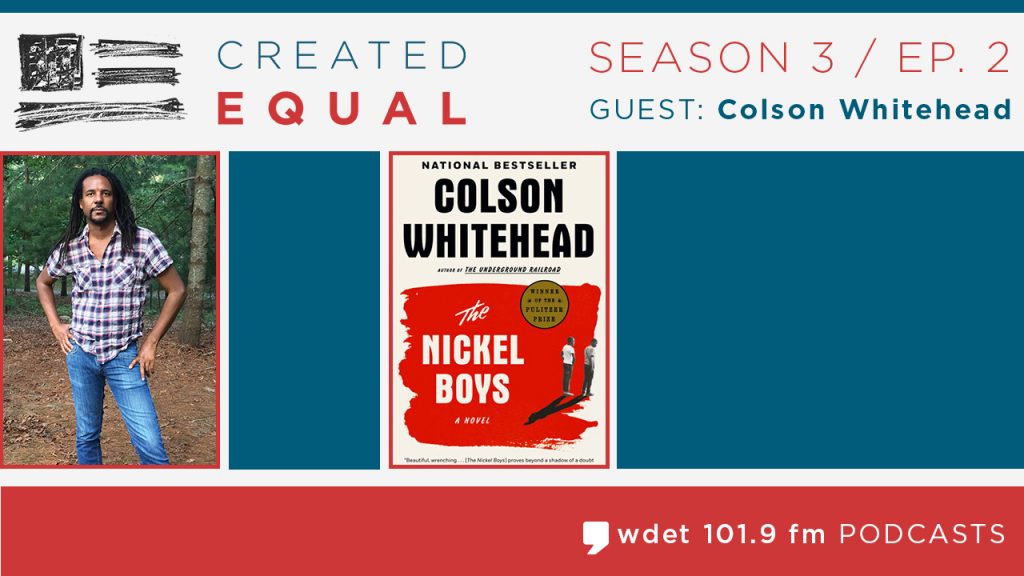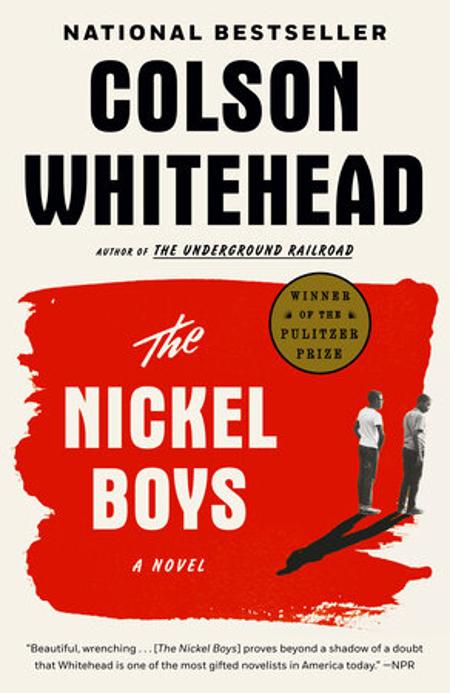Created Equal: Colson Whitehead’s Books Expose the Persistence of Racial Inequity
Two time Pulitzer Prize-winning author Colson Whitehead discusses the inspiration behind and lasting relevance of his latest novel, “The Nickel Boys.”

Season Three of the podcast Created Equal explores “Writers on Race: From Ralph Ellison to Colson Whitehead,” and features some of the most important voices in literature as well as the national conversation on racial inequities.
The conversations were conducted on the radio program, Detroit Today, in the WDET studios on Wayne State University’s campus throughout the pandemic and civil unrest of 2020. Each episode consists of a conversation between Henderson and one writer exploring the role of their work in the conversation about race in America.
Subscribe to the Podcast

Episode 2 Guest: Colson Whitehead
Colson Whitehead is a two-time Pulitzer Prize-winning author. His books include New York Times bestseller “The Underground Railroad,” as well as “The Noble Hustle,” “The Colossus of New York,” and more.
His latest book, “The Nickel Boys,” particularly speaks to the moment of reckoning with racial disparities our nation is currently undergoing, addressing the nuances, humanity and hardships of what it means to be Black in America.
Discussion Points:
How “The Nickel Boys” is still relevant today:
“We never escaped our terrible situation with regards to race, so if you write about racial inequities, they’re always current because we’ve never made real progress.”
The impetus behind “Nickel Boys”:
“It was the summer of 2014 and we were capturing a lot of these police brutality incidents on videotape. Later that summer, in August, they were excavating the site of this reform school, the Dozier School for Boys, and they found these unmarked graves. It seemed if there was one place like this reform school, how many other police brutality events are we missing? I was shocked I had never heard of Dozier — it was covered in Florida papers, but not nationally. It seemed worthy of telling. The campus was segregated — there was a black part and a white part. All of the survivors who came forward, once the school was closed, to talk about their experiences thirty years, twenty years before, were white. I wondered what story I could get out of the Black part of campus, the untold part of campus.”
On the use of surreality by both Whitehead and Ellison to give context to institutions like slavery and racial brutality:
“Surreality, absurdity, these are features of our daily life and so they become a form of realism. I grew up wanting to be a writer… because of Marvel Comics and Stephen King and Ursula K. Le Guin, the Twilight Zone. So, fantasy literature, horror, science fiction made me want to write. Then when I got older, I was attracted to writers who were able to move between realism and fantasy quickly, and with much dexterity… Accepting the fact that our lives are often quite fantastical is a great gift, and I learned that very early from writers who use fantasy.”
Created Equal Season 3 is supported by the Michigan School of Psychology

Trusted, accurate, up-to-date
WDET is here to keep you informed on essential information, news and resources related to COVID-19.
This is a stressful, insecure time for many. So it’s more important than ever for you, our listeners and readers, who are able to donate to keep supporting WDET’s mission. Please make a gift today.
